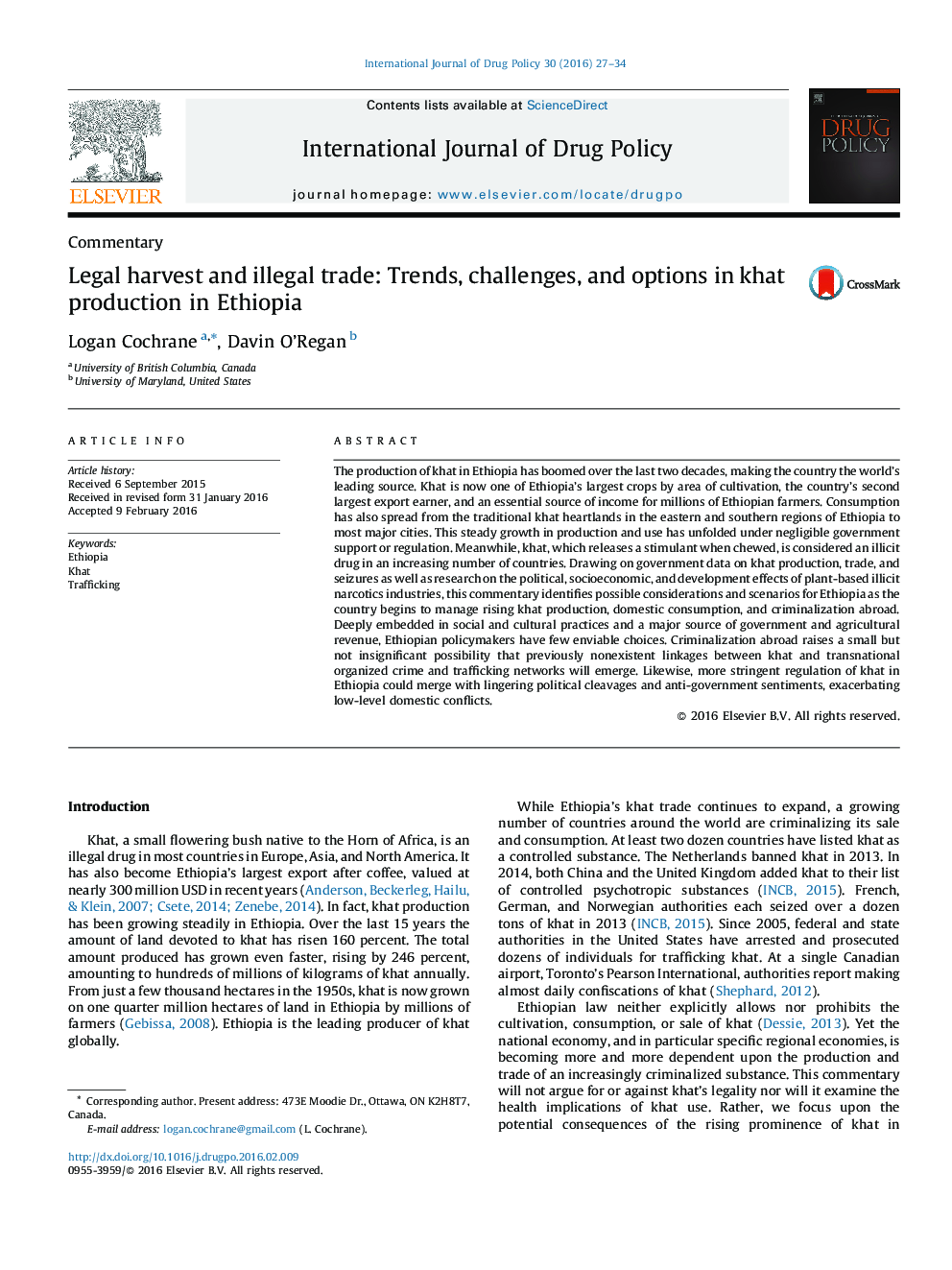| کد مقاله | کد نشریه | سال انتشار | مقاله انگلیسی | نسخه تمام متن |
|---|---|---|---|---|
| 1074969 | 1486275 | 2016 | 8 صفحه PDF | دانلود رایگان |
• Khat production grew 250 percent and crop yields increased 33 percent in 2000–2014.
• Lifetime prevalence in Ethiopia may amount to one third of the population.
• Seizures in Europe grew tenfold in 2000–2013 and states instituted new controls.
• Prohibitions will raise khat's price. Mark-ups will accrue to smugglers, not farmers.
• New regulations in Ethiopia may produce negative political and security effects.
The production of khat in Ethiopia has boomed over the last two decades, making the country the world's leading source. Khat is now one of Ethiopia's largest crops by area of cultivation, the country's second largest export earner, and an essential source of income for millions of Ethiopian farmers. Consumption has also spread from the traditional khat heartlands in the eastern and southern regions of Ethiopia to most major cities. This steady growth in production and use has unfolded under negligible government support or regulation. Meanwhile, khat, which releases a stimulant when chewed, is considered an illicit drug in an increasing number of countries. Drawing on government data on khat production, trade, and seizures as well as research on the political, socioeconomic, and development effects of plant-based illicit narcotics industries, this commentary identifies possible considerations and scenarios for Ethiopia as the country begins to manage rising khat production, domestic consumption, and criminalization abroad. Deeply embedded in social and cultural practices and a major source of government and agricultural revenue, Ethiopian policymakers have few enviable choices. Criminalization abroad raises a small but not insignificant possibility that previously nonexistent linkages between khat and transnational organized crime and trafficking networks will emerge. Likewise, more stringent regulation of khat in Ethiopia could merge with lingering political cleavages and anti-government sentiments, exacerbating low-level domestic conflicts.
Journal: International Journal of Drug Policy - Volume 30, April 2016, Pages 27–34
